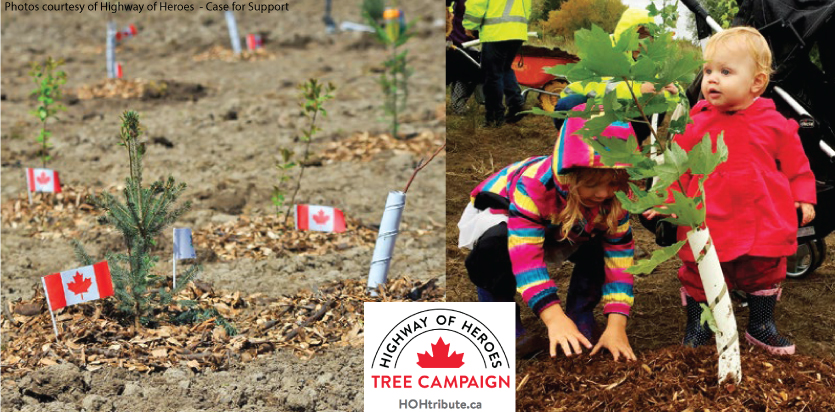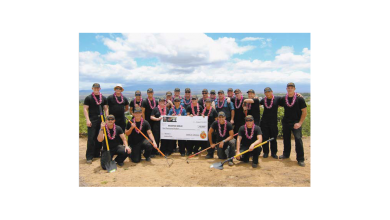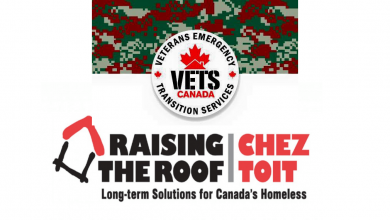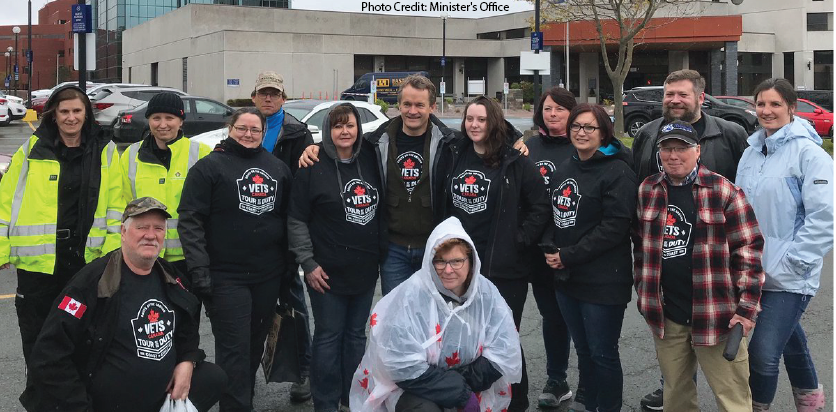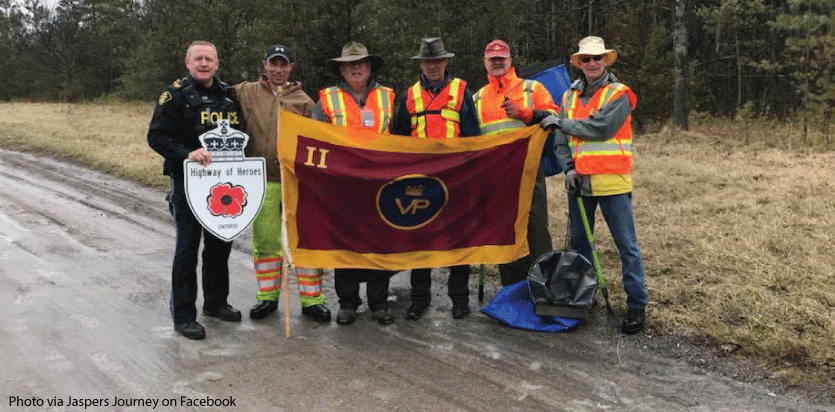Community Builders
Highway of Heroes Tree Campaign plans to create largest, living memorial
The idea had originally formed from an environmental initiative around 2013. A group of tree-loving individuals from different organizations planned to create a tree canopy across the length of Highway 401. It was then Tony DiGiovanni, head of Landscape Ontario, suggested they plant the trees for veterans on the Highway of Heroes.
Avid military and Canadian Forces enthusiast, Mark Cullen, and Michael de Pencier, founder of Toronto Life magazine, loved the idea and joined forces with DiGiovanni to create Tree for Heroes.
“It kind of morphed into the organization we have now. We’re planting two-million trees in honour of our Canadian Military, those that have served and 117,000 of those trees will be most prominent along the highway and will be in memory of those that have lost their lives,” said Amanda Martin, community engagement manager for Highway of Heroes Tree Campaign.
This year will be the first full year of tree planting for the campaign. They have planted 17,000 trees to date with plans for 20,000 more, plus additional planting sites off the highway. Martin said all the trees are native species and are sourced from Landscape Ontario growers. Also, with being a non-profit organization, they do rely on donations. By 2020, they plan to raise $10 million. So far, they’ve raised $2.7 million.
“We’re looking to make our donor dollar stretch as far as possible, so quite often we’ll either get product donated or we will get it at a discount,” said Martin.
Until recently, all of the donations the Highway of Heroes Campaign received were through public and private donations. Mid-March 2018, the campaign received acknowledgement from the Provincial Government and granted them $1 million. Other funds have been raised from people across the country. Mainly Ontario donors Martin says, but people across Canada have donated and they also have corporate sponsors such as, TD, Cowan Insurance, Mark’s Choice, Landscape Ontario and Garden Club of Toronto.
“We’ve done a lot, but we certainly still have a long way to go and a lot of it has come from people that just really believe,” said Martin. “Private citizens just chose to come out on the bridges and pay respects and very much with our campaign, private citizens very much believe in what we’re doing and have been supporting us and making this possible. (They) just really support what we’re doing on every level and really making this possible.”
Once the trees are assembled, the next step is to prepare the soil before they plant. Experts from Vineland Research and Innovation have completed extensive research for the best way to grow and have trees survive the harshest conditions, like the side of Highway 401.
“They have determined that the best thing for our trees to be able to survive for the long haul, so it’s very important that we take time to prepare that soil, put compost and do what needs to be done in order to ensure that when we plant the trees, they’ll survive,” said Martin.
Martin calls it the “Emerald Ribbon,” the rows of trees that will soon line the length of the Highway of Heroes and says it’s a multifaceted campaign.
“One, I think it will have an environmental impact. Obviously, the planting of 2 million trees in an area through which the busiest highway in North America runs certainly has an effect on carbon offset,” she said.
Second, she believes it’s a great way to bring communities together to be a part of something and creating a living memorial for future generations to enjoy and learn about those who sacrificed and gave so much for their country and she hopes to make it a beautiful memorial.
“We have landscape designers that have volunteered their time to create beautiful designs and choices of species in order to make it not only a row of trees, but an emerald ribbon throughout a well-traveled place that people will see and be able to remember. It has several impacts in which we touch people,” said Martin.
They have also created another outlet for the Garden Club of Toronto. Outside of the Coroner’s Office in Toronto lays a memorial garden. A group of veterans who turned to gardening as a form of therapy have agreed to help care for the garden.
“The campaign has even reached out to support people in different ways that we had never even thought of when the idea was conceived. It really brings together all sorts of different groups,” said Martin.
For more information on how you can help the Highway of Heroes Tree Campaign, you can visit their website here.


